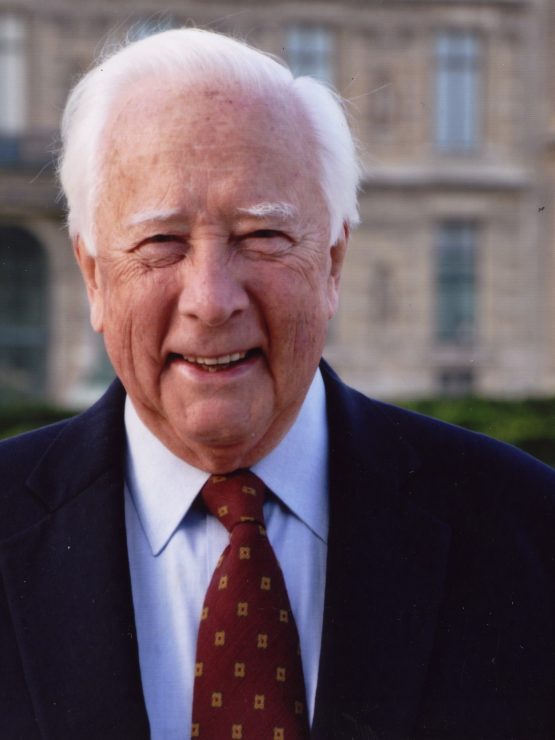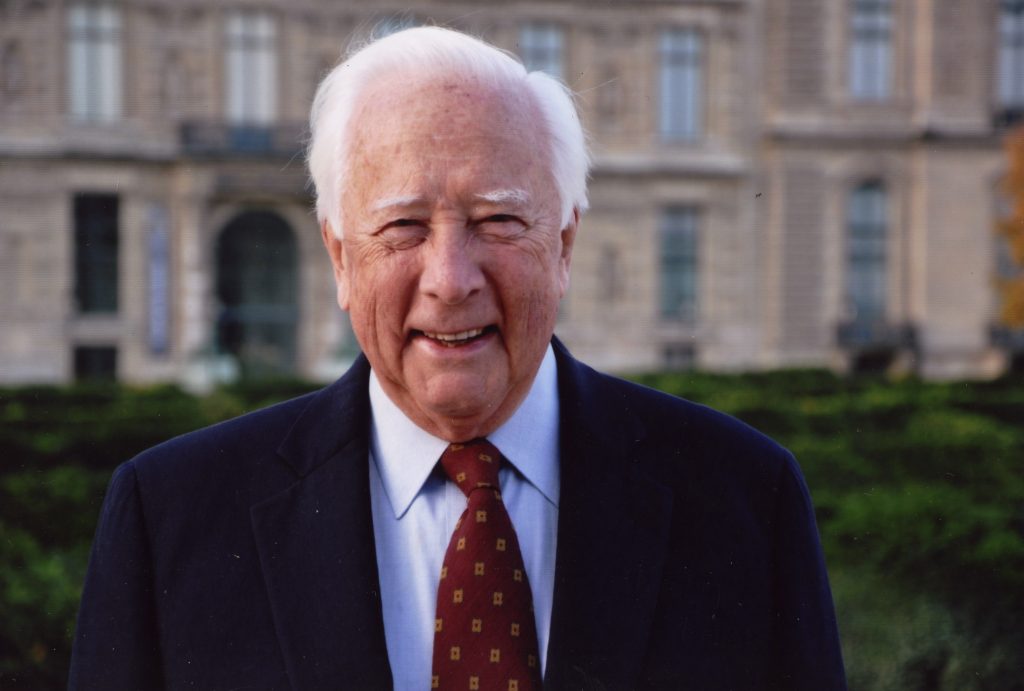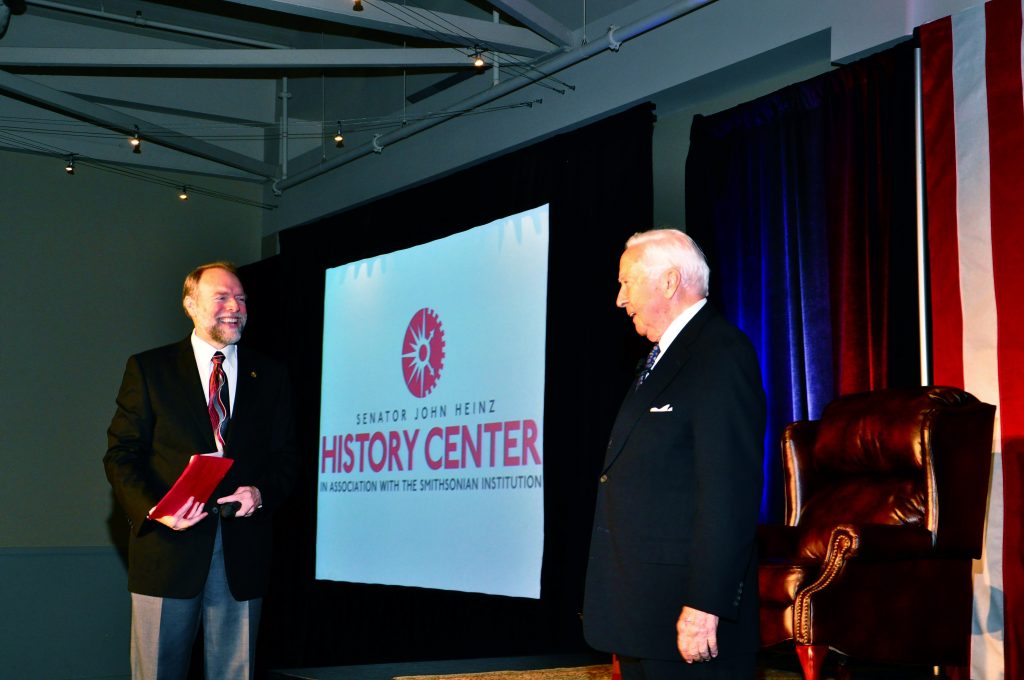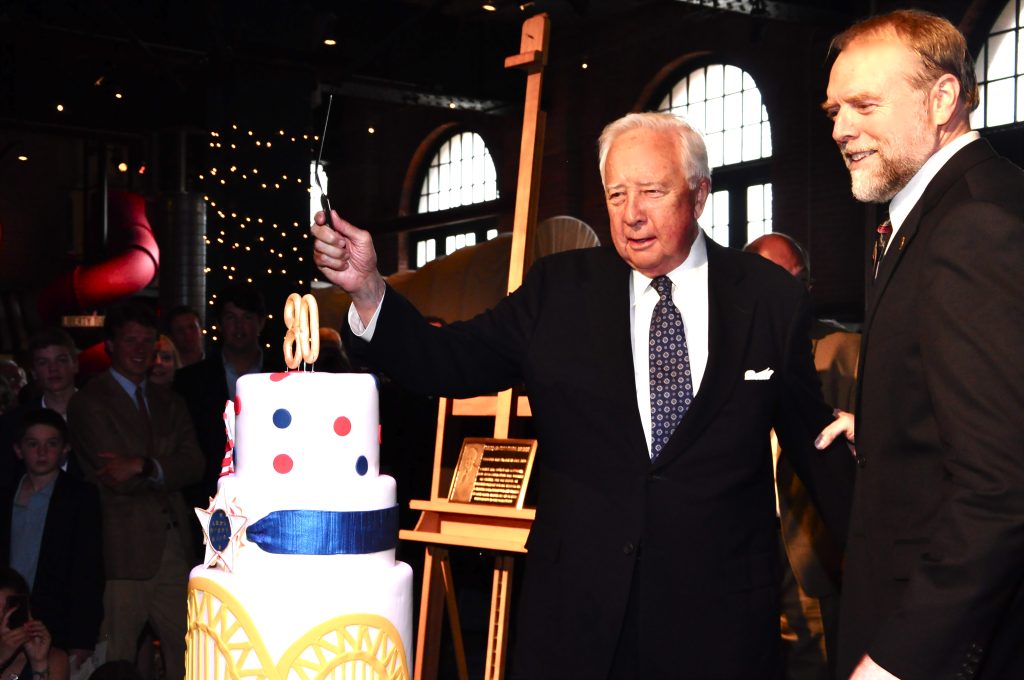When he was young, David McCullough couldn’t decide if he would be a painter, an actor, an architect, or a writer. Eventually, he did it all. And he did it with a style and passion that engaged and inspired generations of Americans.
Growing up in Pittsburgh, his father nightly regaled David and his three brothers at the dinner table with stories of people and events that shaped the city. David distinctly recalled bursting his mashed potato dam to release the gravy that inundated the unsuspecting peas below while exclaiming, “it’s the Johnstown flood!”
He married Rosalee Barnes, who he had met as a teenager at a dance in Pittsburgh, and they began their lifelong partnership. David often pointed out that besides being the mother of their five children, Rosalee was “editor in chief and chairman of the ethics committee.” As a young journalist in Washington, he discovered at the Library of Congress a trove of dam disaster photographs, and in 1968 he published his first book, the highly acclaimed “Johnstown Flood.”
In 1972, he introduced American readers to “The Great Bridge” – the story of the Brooklyn Bridge and its builder, Western Pennsylvania’s Roebling family. He loved architecture and engineering, and I remember how joyful he was when in 2013 the city of Pittsburgh renamed its beautifully sculptured, historic landmark 16th Street Bridge over the Allegheny River the David McCullough Bridge.
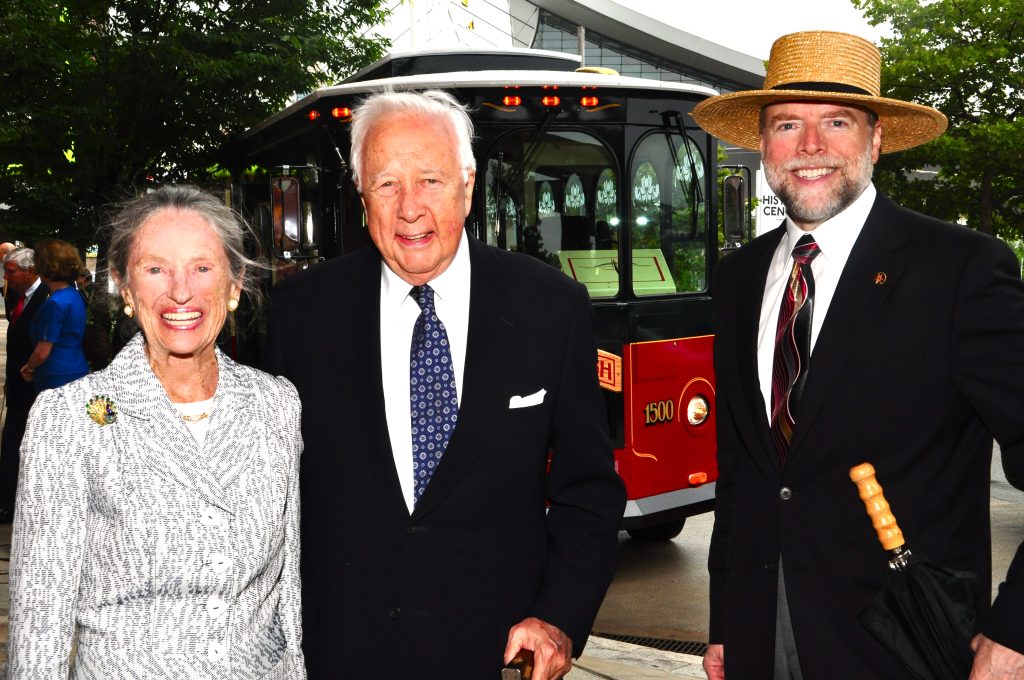
[Image: David with his wife Rosalee McCullough (who passed away in June) at the dedication of the David McCullough Bridge.]
In 1981, he trotted out “Mornings on Horseback.” It’s still one of my favorite books, revealing in a very intimate way the life of young Theodore Roosevelt. “The Path between the Seas” and “Mornings on Horseback” earned David a growing following and two National Book Awards. With a growing family, he was not content to rest on his laurels, he kept on writing and filmmaking.
He lent his voice to public television’s “Smithsonian World” and “The American Experience.” His dulcet baritone and intuitive storyteller timing made Ken Burns’ “Civil War” documentary the amazing success it has become—even decades later.
David inspired us with the stories found in his Brave Companions in 1991. Then came “Truman” in 1992 followed by “John Adams” (2001)—both Pulitzer Prize winners.
In 2005, he took on the American Revolution with his “1776.” David had long been intrigued by the revolutionary generation, perhaps inspired by the stories he heard as a youth here in Western Pennsylvania about young George Washington.
He was perturbed by how much recent generations take for granted, and he was quick to point out that nothing is fore ordained—the fate of our republic hung by a thread in 1776, and today we have an obligation to ensure its survival. He often quoted Librarian of Congress, Daniel Boorstin, who said that “trying to plan for the future without a sense of the past is like trying to plant cut flowers.” David, would then add, “today we’re raising a lot of cut flowers and trying to plant them!”He went to the White House to receive the nation’s highest civilian honor, the Presidential Medal of Freedom.
In 2011 David took us on “The Greater Journey: Americans in Paris,” which stayed on the New York Times best seller list longer than it took to build the Eiffel Tower.
Pittsburgh’s Heinz History Center enjoyed hosting David’s book launches, which inevitably packed the house. He always stayed late to personalize the books he signed for the adoring hometown crowd.
His legion of loyal readers had followed David on his voyages on land and sea—but in 2017, he took to the sky. Not a flight of fancy, mind you, but the story of “The Wright Brothers” who, of course, came to Pittsburgh for a lightweight aluminum engine block that enabled them to get their flyer off the ground.In 2019, David wrote his last book, “The Pioneers: The Heroic Story of the Settlers Who Brought the American Ideal West.”
I once asked David, “when is the right time to retire?” He advised me that the secret to a long life is: “don’t ever retire.” He also pointed out that he wrote some of his best books, from “John Adams” to “The Pioneers,” after he had turned 65.
He also reminded me of how important it was to be a teacher. “Stop and think about those teachers who changed your life, maybe with a single sentence, maybe with one lecture, maybe by just taking an interest in your struggle.” He said, “our new heroes should be the teachers, those who share their knowledge and their passion to inspire us to achieve great things and build a better future.”
David wrote in his book, “The American Spirit,” that, “history is a larger way of looking at life. It is a source of strength, of inspiration. It is about who we are and what we stand for and is essential to our understanding of what our own role should be in our time. History, as can’t be said too often, is human. It is about people, and they speak to us across the years.”
“The lessons of history,” he would say, “are manifold. We are all part of a larger stream of events, past, present, and future. We are all beneficiaries of those who went before us…from history we learn that sooner is not necessarily better than later…that what we don’t know can often hurt us and badly…and that there is no such thing as a self-made man or woman.”
David believed that Pittsburgh was the “essential” American city. “If you can understand Pittsburgh,” he would say, “you’ll understand the American experience.” He knew that art and artifacts, libraries and historic places, are important in our understanding of the past.
He believed in the Heinz History Center. In fact, he was one of its founders and principal architects. Our Smithsonian-affiliated History Center would not be here today had it not been for David McCullough. At the same time, he became a trusted friend and mentor to me.
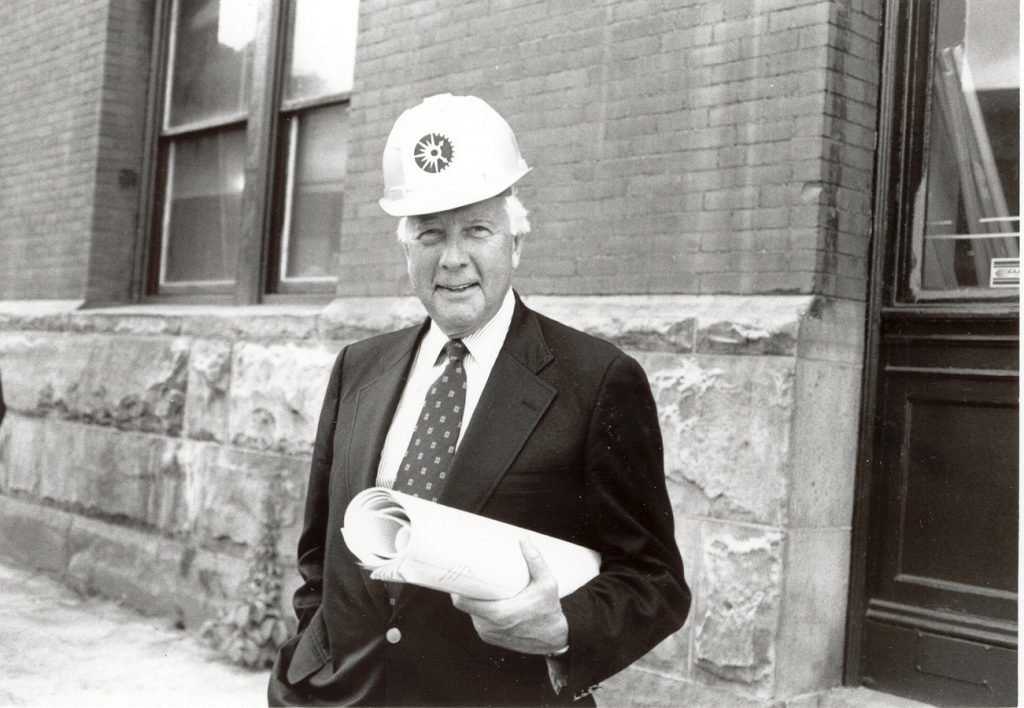
[Image: David McCullough pictured here with a hard hat and blueprints during the construction of the Heinz History Center in 1995.]
enough,” he said, “facts rarely if ever have any soul. In writing or trying to understand history one may have all manner of ‘data’ and miss the point. One can have all the facts and miss the truth. It can be like the old piano teacher’s lament to her student, ‘I hear all the notes, but I hear no music.’”
David had a beautiful singing voice and was a gifted speaker. He lectured around the world in every conceivable venue, including the White House, and was one of only a few private citizens to ever speak before a joint session of Congress. Usually he spoke without notes, crafting a narrative that left audiences spellbound.
New generations still experience the more than one hundred films and documentaries he introduced or narrated. His books have been published in nineteen languages, and—as may be said of few writers—none of his books has ever been out of print.
I assure you that David McCullough is with us still—in his books and films, in the museums and libraries he supported, in his children, grandchildren and great grandchildren, and in the hearts of those whose lives he touched.
He is here in spirit, and our work continues … and that, I can guarantee, is music to his ears.
Andy Masich
President & CEO
